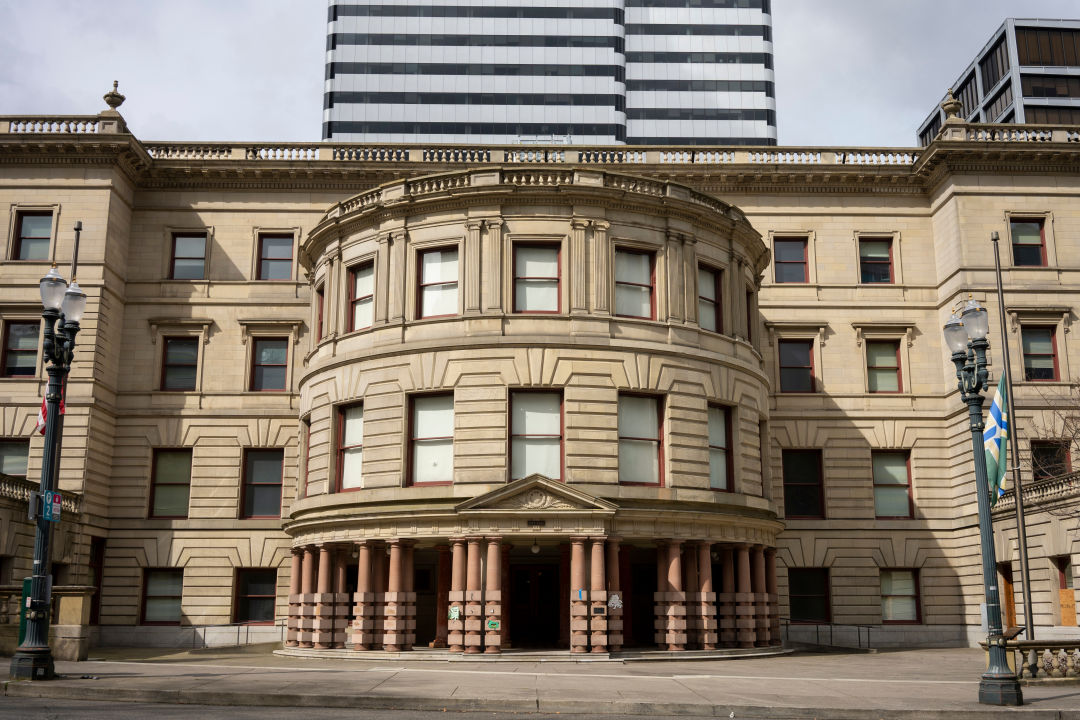Here's What You Need to Know about the Effort to Overhaul City Government in Portland

Portland voters this November will consider whether to overhaul the city’s existing—and, most everyone agrees, arcane—form of government, that much we know for sure.
Before last week, that wasn’t a given, with legal challenges brought by opponents of the charter reform proposal, who had argued, in essence, that its all-or-nothing approach is the wrong path forward for the city.
But last week, Multnomah County Circuit Court Judge Stephen Bushong dismissed those arguments, cementing the decision of a supermajority of Charter Commission members who approved the plan, and clearing the path for voters to have the final say on a complex proposal that would remake almost all aspects of Portland’s city government by 2025.
Here’s what to know about the proposal, and what to watch for in the months between now and Election Day on November 8.
What would change, in a nutshell?
Currently, Portland has a five-member city council and a “weak mayor” system. That means that Mayor Ted Wheeler, save for his ability to issue emergency declarations and assign his colleagues to supervisory positions over individual bureaus, has essentially equal powers with the other four council members.
Under the new form of government, the city council would expand from five to 12 seats. The city would be split into four districts, each of which would have three representatives. And the city would move to a ranked choice voting system, in which voters rank their candidates in order of preference.
One more big change: Portland would have a city administrator, answerable to the mayor, who oversees the day-to-day work of its bureaus, public safety to transportation to parks. City council members would be more like state legislators—setting policy, but not responsible for seeing that it is executed.
Who’s behind this effort?
A slew of folks, who are a cross-section of old and new Portland. Civic institutions like the League of Women Voters and the City Club of Portland have come out in support, and so, too, have nonprofits like Next Up Oregon, which aims to increase voter turnout among young voters, as well as the Latino Network and the ACLU of Oregon. Their argument is that passage would lead to a more representative, responsive and effective city government.
The yes-on-charter-reform campaign is being led by a group called Portland United for Change; the group has already raised more than $200,000 to go toward voter education and get-out-the-vote efforts, spokesperson Damon Motz-Storey says, though its contributors won’t be publicly listed with the state until September, when an official ballot measure number is assigned.
But not everyone thinks this is a great idea?
Nope. At least three of five current city council members have expressed reservations about this wholesale change, per a report in Willamette Week, as have local business interests, who went to court to argue that voters should be allowed to weigh in separately on each of the different proposed reforms. Some longtime political staffers agree, saying that multimember districts will lead to a focus on narrow issues instead of those of citywide importance and a lack of accountability among same-district members.
Current council member Mingus Mapps has said he’s supportive of the overall concept of reform but would prefer single-member districts, and for voters to be able to consider the changes separately. He has about $15,000 on hand in his Ulysses PAC, should he choose to deploy it to sow doubt in voters’ minds.
And former charter commission member Vadim Mozyrsky, who ran unsuccessfully this past spring for Jo Ann Hardesty’s city council seat, is helping to lead another effort to convince voters to vote no. The associated Partnership for Common Sense government political action committee has $12,773 on hand, per the Secretary of State’s campaign finance database. (If the well-resourced Portland Business Alliance decides to put money into opposing this measure, the pronounced pro-charter-reform fundraising advantage could evaporate fast.)
What happens if it passes?
Things will change, but not immediately. Two more commissions will be appointed. The first one will draw up boundaries for the new multimember districts, in a process not unlike congressional redistricting, controlling for geography, voter tendencies, diversity in representation, and more. The second will consider salary levels for a 12-member council and a city administrator as opposed to a five-member council. Ongoing cost estimates could run as high as $8.7 million, per the city budget office, or about 1.4 percent of the city’s discretionary funds. The newly elected council members would emerge from the November 2024 general election—a high-turnout, presidential-election year—and take their seats in early 2025.
And if it fails?
Back to the drawing board. By law, Portland’s form of government must be reconsidered at least every 10 years. Mapps has floated the possibility of breaking out the individual portions of the proposal and putting them to voters in 2023, but Motz-Storey points out that when previous attempts at charter reform have failed, voters didn’t have much appetite to quickly revisit them.




